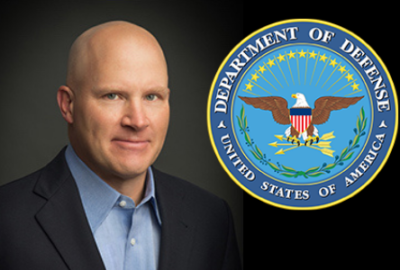DIU’s newest office is off and running investing in hardware innovations
The office is hoping to convince Congress for at least $75 million in 2022.
One of the Defense Department’s newest shops to promote technological advancements in the private sector just finished investing $15 million in hopes of funding the next generation of military hardware.
The National Security Innovation Capital (NSIC) was created by Congress in 2019 to stimulate hardware technology research in the private sector, but the organization didn’t get its funding until the beginning of 2021. NSIC is a part of the Defense Innovation Unit, which funds companies’ products for military use.
Now that it’s off and running, the Mountain View, California-based office, has nine months of work and millions of spending to show legislators for the upcoming budget cycle.
“We approach the work that we do with hardware startups very much like a venture firm would,” Tex Schenkkan, NSIC’s director, told Federal News Network. “We try to identify technologies that we think show promise that fit the criteria we’re looking for. We work with them to fund the development concept that they have in mind. We’re not redirecting them to do something specific at that time for the Defense Department. Then, we set up an ongoing relationship where we fund them as they are developing those particular products or technologies.”
Some of the companies NSIC invested its $15 million in over the last nine months include:
- New Frontier Aerospace, which is developing a new rocket engine design intended for hypersonic vehicles
- FuelX is developing a manufacturing process that produces a material for the safe storage and transportation of hydrogen
- Advanced Magnet Lab is a company creating a manufacturing process that will result in a domestic source of novel, high-performance magnets
- A company to be announced soon is building a domestic manufacturing facility to produce qualification cells based on a next-generation battery chemistry
“We look at broad areas of technology that are of interest to us,” Schenkkan said. “Autonomy, not so much electric vehicles, but smaller, autonomous drones and underwater vehicles and so on. New communications technologies, so technologies that are hard to spoof or jam. Power and battery technologies, energy storage, energy production and conversion, mostly small scale, grid scale kinds of things. And finally sensors of all kinds, which flows into many areas including autonomy, and space technologies.”
Schenkkan said less than 30% of private U.S. venture capital is invested in hardware companies, and less than 10% of that is invested at early stages.
One concern was that foreign investors would get to those companies first.
“What was happening, and still happens to some extent, although it’s much better than it used to be, is a hardware startup company struggling for funding, looking for funding sources, couldn’t find money from U.S. venture firms. They would get approached by other venture firms that are fronts for money from Chinese or Russian investors that actually represent government interests,” Schenkkan said.
NSIC hopes to fill the hole that U.S. investors are leaving behind.
The office originally requested $75 million in the president’s budget to start its operations. That was tamped down to $15 million in the legislative budgeting process.
Schenkkan said he hopes that the results of this year will convince Congress to increase NSIC’s budget. The House Armed Services Committee’s defense authorization bill has the topline for NSIC at $26 million for 2022.
Copyright © 2025 Federal News Network. All rights reserved. This website is not intended for users located within the European Economic Area.
Scott Maucione is a defense reporter for Federal News Network and reports on human capital, workforce and the Defense Department at-large.
Follow @smaucioneWFED







